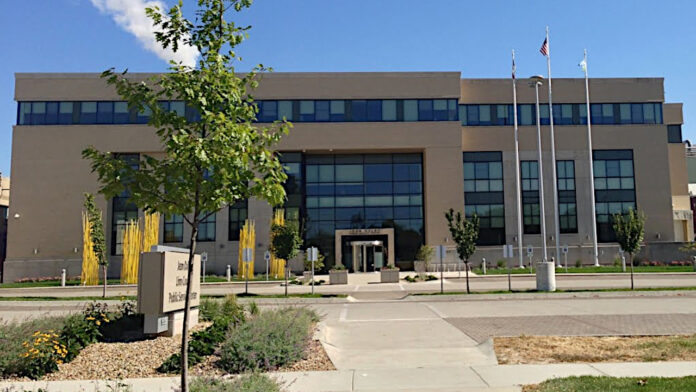
With no public comment, the Linn County Board of Supervisors voted Dec. 18 to implement a new set of regulations governing the construction of hazardous liquid pipelines.
The third and final reading of the ordinance implementing the regulations was a routine affair, passed unanimously by the three-member board with no additional discussion.
At the board’s Dec. 11 meeting to consider the ordinance’s second reading, supervisors said they were surprised there had been no public input on the new regulations, since the board’s consideration of a hazardous pipeline ordinance back in 2022 garnered feedback from a number of concerned citizens, and the regulation measure failed to advance at that time.
County officials say the new ordinance is designed to balance economic development opportunities with safety and environmental concerns.
Linn County Planning and Development director Charlie Nichols noted that at present, “hazardous liquid pipelines are regulated by a patchwork of different federal and state agencies, including the US Department of Transportation, Pipeline and Hazardous Material Safety Administration, also called PHSMA, and then the Iowa Utilities Commission.”
“We don’t have any local regulations for hazardous liquid pipelines,” Mr. Nichols said at the board of supervisors’ meeting Dec. 11.
Mr. Nichols also said the proposed ordinance is “fairly narrowly focused on economic development,” which he termed “a public purpose of counties.”
“Hazardous liquid pipelines represent both an economic development opportunity for Linn County as well as an economic development risk,” Mr. Nichols said. “The purpose of this ordinance (is) to encourage and take advantage of new economic development opportunities presented by hazardous liquid pipelines, while balancing the need to protect existing economic interests, property values, as well as planned economic growth strategies … hazardous liquid pipelines would represent an opportunity for existing businesses to engage in new markets. There are also existing businesses that could be impacted by the location of a pipeline. So we want to make sure that we are carefully and strategically integrating a new pipeline with any existing, not just businesses, but growth areas in Linn County.”
In summary, the proposed ordinance covers four key components – minimum siting distance requirements from occupied homes and gathering places, a road use agreement to prevent damage to public infrastructure during construction, an agricultural impact mitigation plan, and a required consultation area to ensure that area residents impacted by a pipeline would be kept informed on key steps.
County officials said Linn County’s ordinance requires hazardous liquid pipeline applicants to apply for a permit from Linn County that demonstrates compliance with all four components. The applicant must receive an approved permit prior to beginning construction.
There are no hazardous liquid pipelines currently being considered in Linn County.
Wolf Carbon Solutions announced Dec. 2 that it had decided not to pursue construction of a carbon capture pipeline that would have run through Linn County and several other Eastern Iowa counties. Navigator CO2 officially withdrew its petition in Iowa for a hazardous liquid pipeline permit in October 2023, after earlier announcing it was canceling its project. And the route for the proposed Summit carbon pipeline doesn’t traverse LInn County.




